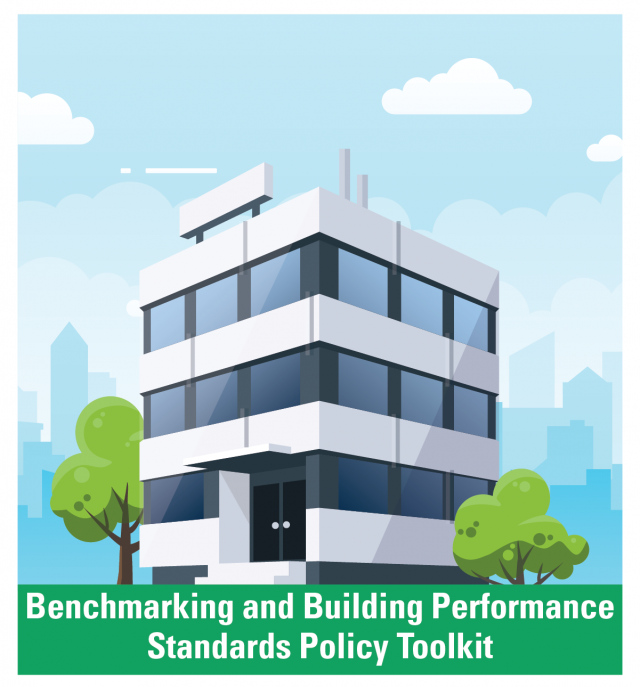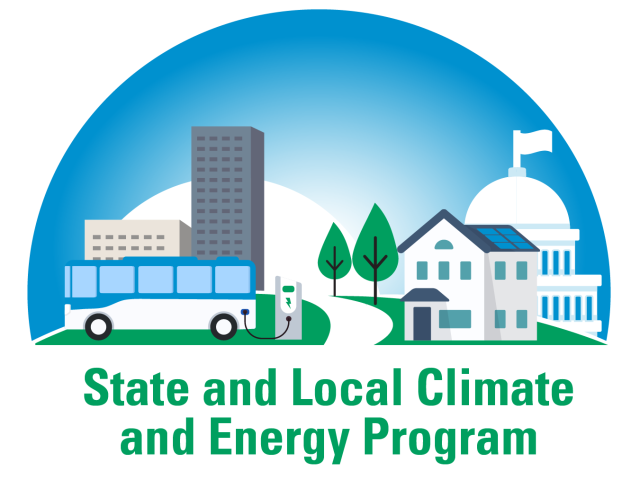Benchmarking and Building Performance Standards Policy Toolkit
EPA’s Benchmarking and Building Performance Standards Policy Toolkit aims to inform and support state and local government decision makers who are exploring adopting policies focused on reducing energy use and greenhouse gas (GHG) emissions from existing commercial and multifamily buildings in their communities.
As state and local governments establish climate commitments, achieving emission reductions from buildings is critical for reaching decarbonization goals. In the US, commercial and residential buildings account for nearly 40% of energy consumed and over 30% of GHG emissions. Improved performance in existing buildings can help to achieve decarbonization goals and deliver many additional benefits, including: energy cost savings, increased building asset values, local job creation, improvements to indoor air quality, tenant comfort and productivity, and improved air quality from reduced power plant emissions.
Benchmarking Benchmarking refers to measuring a building’s energy use (and in some cases water use) and comparing it to the energy use of similar buildings, its own historical usage, or a reference performance level. energy use of buildings is a key first step to understanding and improving energy performance and reducing carbon footprints. Many state and local governments have coupled benchmarking policies with other programs aimed at encouraging building performance, including voluntary campaigns, building energy audits, retrocommissioning, or building performance standards A building performance standard is a policy that requires building owners to meet performance targets by actively improving their buildings over time, often with interim targets that drive energy savings and emissions reductions.. As more state and local governments seek to adopt BPS and other polices for existing buildings, this toolkit can offer:
- Key considerations for policy design
- Opportunities for cross-jurisdictional coordination
- Strategies for using EPA’s ENERGY STAR® Portfolio Manager® tool
The toolkit includes four sections focused on different aspects of policy development, each intended to build on the previous section. As BPS policies are new and evolving, EPA will seek to update this toolkit and add new resources, including a resource to help state and local governments identify performance metrics.
Toolkit Sections
Section 1: Building Energy Benchmarking and Transparency: Overview for State and Local Decision Makers (pdf)
Provides information about benchmarking and transparency policies, describes key considerations for success, and demonstrates how government leaders have used benchmarking to help enact a BPS.
Section 2: Building Performance Standards: Overview for State and Local Decision Makers (pdf)
Provides an overview of building performance standards and offers information on key decision points to consider when designing a BPS.
Section 3: State and Local Government Coordination: Benchmarking and Building Performance Standards (pdf)
Describes the varied roles that state and local decisions makers have in establishing existing building policies and opportunities to coordinate across jurisdictions.
Section 4: Data Access: A Fundamental Element for Benchmarking and Building Energy Performance Policies (pdf)
Describes the critical role that utilities play in providing whole-building energy consumption data to enable compliance with benchmarking and transparency and BPS polices.
Data Access: Sample Policy Language (pdf) Fact sheet that offers sample policy language to support utility data access.
Data Access: How to Compile and Deliver Aggregate Whole-Building Data (pdf) Fact sheet that describes technical considerations that utilities must work through to successfully compile and deliver aggregate whole-building data.
Additional Resources
- Benchmarking Policies and Building Performance Standards: EPA Resources
- Tools for State, Local and Tribal Governments
- ENERGY STAR Portfolio Manager®
- Quantifying the Multiple Benefits of Energy Efficiency and Renewable Energy: A Guide for State and Local Governments
- ENERGY STAR Buildings Support for State and Local Governments
More Information
To learn more about the Benchmarking and Building Performance Standards Policy Toolkit, submit your questions or listen to this webinar overview.



